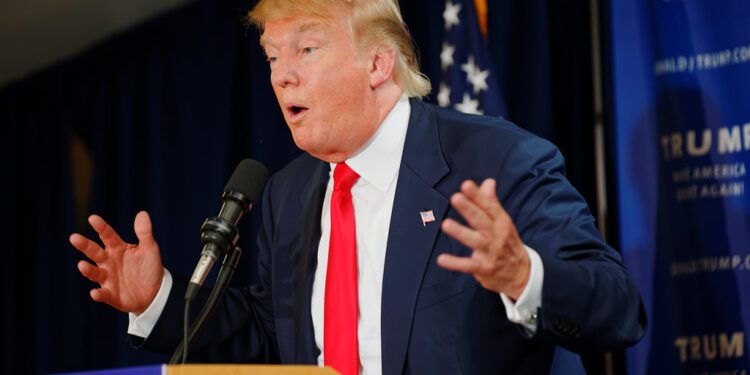The potential return of Donald Trump to the White House has caught the attention of investors and business executives as they consider the possible reactions of the stock market. Historical data indicates a range of outcomes, suggesting both hopeful and cautious approaches may be necessary. From 2017 to 2021, during Trump’s initial term, the S&P 500 marked substantial increases of 70%, yielding an average annual return of 14.1%.
This upswing was predominantly fueled by the 2017 Tax Cuts and Jobs Act, which reduced corporate tax rates to their lowest levels since 1939. Although the U.S. economy flourished at a robust rate during this timeframe, it still faced challenges prompted by the onset of the COVID-19 pandemic. Nonetheless, the present economic climate poses its own set of hurdles.
The S&P 500 currently operates at a significant forward price-to-earnings ratio of 22.2, which raises flags regarding possible market volatility. Torsten Slok, the Chief Economist at Apollo Global Management, forecasts only modest annualized returns of around 3% for the next three years, given these valuation levels.
Investors cautious about economic fluctuations
Investors may want to manage their expectations and ready themselves for possible market pullbacks. Increasing cash reserves and remaining alert for investment options during market declines might prove to be prudent strategies. Studies suggest that while markets initially react positively to the return of right-wing populist leaders, such celebrations are often fleeting.
Populist economic measures, including tariffs and tax cuts without funding, can yield immediate benefits but might inflict lasting damage on the economy. The more significant concern lies in the risk that populist leaders pose to established institutions. Undermining independent judicial systems, central banking authorities, and regulatory agencies can diminish investor trust and obstruct long-term business strategies.
As Trump begins his tenure, investors are optimistic about potential corporate tax reductions and are hopeful that he will abstain from enacting the global tariffs he proposed during his campaign. The performance of the stock market under the forthcoming administration will significantly hinge on the policies adopted and their repercussions for both the economy and institutional integrity.


